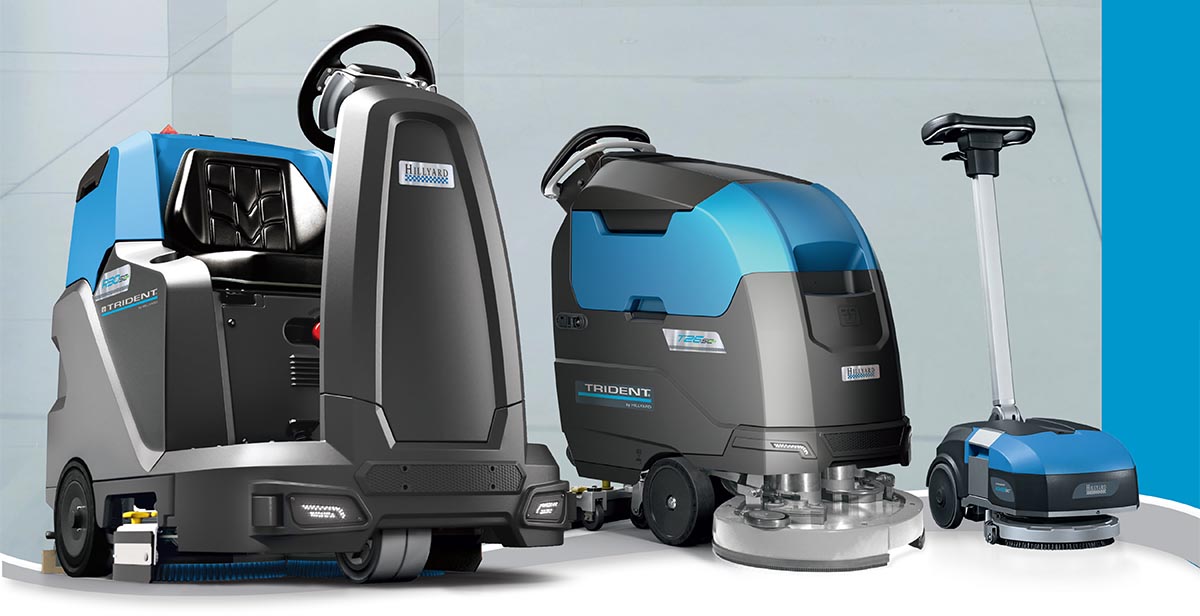
Why Commercial Floor Cleaning Matters
In any commercial or industrial facility, clean floors are critical. Dust, dirt, and spills can pose safety hazards, contribute to equipment wear and tear, and diminish the overall perception of a brand or business. Here’s why commercial floor cleaning should be a top priority:
- Safety Compliance: Reduces the risk of slips, trips, and falls.
- Health and Hygiene: Especially critical in healthcare and food-service sectors.
- Productivity Boost: Clean environments contribute to better employee morale and efficiency.
- Equipment Longevity: Dust and grime can accelerate machinery degradation.
- Brand Image: Shiny floors reflect positively on your company.
Smart Floor Scrubbers: Revolutionizing Commercial Cleaning
The cleaning industry is rapidly adopting automation, and smart floor scrubbers are leading the charge. These AI-powered machines are designed to autonomously clean floors with precision, consistency, and minimal human intervention.
Key Features of Smart Floor Scrubbers:
- Autonomous Navigation: Uses sensors, LiDAR, and GPS for self-guided operation.
- Obstacle Detection: Avoids furniture and moving objects without causing damage.
- Usage Analytics: Tracks coverage area, battery life, water usage, and cleaning cycles.
- Remote Monitoring: Managed via apps or cloud platforms for real-time performance review.
Benefits:
- Lowers labor costs
- Ensures consistent cleaning quality
- Maximizes floor coverage efficiency
- Eco-friendly with optimized resource usage
Water Recycling Systems in Scrubbers: Sustainability in Action
Eco-conscious businesses are turning to water recycling systems in scrubbers to reduce waste and cut operational costs. These systems filter and reuse water during the cleaning process, reducing overall water consumption by up to 80%.
How It Works:
- Dirty water is collected during scrubbing.
- The water is passed through a multi-layer filtration system.
- Recycled water is reused for continued cleaning.
Advantages:
- Environmentally Responsible: Minimizes water wastage
- Cost-Effective: Reduces utility bills
- Compliance-Friendly: Helps meet sustainability regulations
- Extended Operation Time: Reduces refill and dump cycles
Industrial Cleaning Machines: Powering Large-Scale Cleanups
When it comes to vast floor areas, nothing beats the performance of an industrial cleaning machine. These machines are engineered for durability, efficiency, and power.
Types of Industrial Cleaning Machines:
- Ride-On Scrubbers: Best for large spaces; operator drives the machine.
- Walk-Behind Scrubbers: Ideal for medium-sized areas.
- Sweeper-Scrubber Combos: Combine sweeping and scrubbing in one pass.
Industries That Rely on Them:
- Manufacturing Plants
- Airports
- Educational Institutions
- Retail Chains
- Government Facilities
What to Look for:
- Battery life or power source (lithium-ion is now common)
- Tank capacity
- Brush type and pressure
- Cleaning width and speed
- Ease of maintenance
Cleaning Machines for Floors: Picking the Right Tool
Choosing the right cleaning machines for floors depends on a few critical factors:
Floor Type:
- Tile & Grout: High-pressure scrubbers or brush-head machines
- Concrete: Heavy-duty scrubbers with abrasive brushes
- Carpet: Low-moisture extractors
Area Size:
- Small Areas: Compact walk-behind units
- Medium to Large Areas: Ride-on units or autonomous scrubbers
Frequency of Use:
- Daily: Invest in durable machines with long runtime
- Weekly: Budget-friendly options may suffice
Floor Cleaning Scrubber Machine: The Workhorse of Commercial Cleaning
The floor cleaning scrubber machine is the backbone of any janitorial operation. It scrubs, vacuums, and dries floors in a single pass, saving time and improving results.
Must-Have Features:
- Adjustable brush pressure
- Ergonomic controls
- Quiet operation for 24/7 facilities
- Quick-change squeegee and brush systems
Popular Brands in the Market:
- Tennant
- Nilfisk
- Kärcher
- Clarke
- Advance
Integration with IoT and Smart Building Systems
Modern cleaning equipment now integrates with Internet of Things (IoT) platforms to enhance building automation. Smart floor scrubbers can communicate with other systems like HVAC and lighting to optimize building energy use based on occupancy and cleaning schedules.
Smart Benefits:
- Centralized facility management
- Real-time alerts for maintenance
- Data-driven performance insights
Cost Considerations: Investment vs. ROI
While advanced cleaning machines can be expensive, they offer a significant return on investment.
ROI Factors:
- Labor cost savings
- Extended floor life
- Reduced chemical and water usage
- Improved facility image = higher customer retention
Maintenance and Training
Proper maintenance ensures machine longevity and safety. Many manufacturers offer free training for cleaning crews.
Key Maintenance Practices:
- Daily tank and filter cleaning
- Weekly brush/squeegee inspections
- Monthly battery checks
- Annual servicing
Case Study: Smart Scrubbers in a Retail Chain
A multinational retail chain implemented smart floor scrubbers in 200+ locations. After 6 months:
- Labor costs dropped by 25%
- Cleaning consistency improved by 35%
- Water usage declined by 60%
- Customer satisfaction increased (measured via surveys)
Final Thoughts
As commercial facilities evolve, so must their cleaning strategies. Whether you’re managing a hospital, shopping mall, or factory, investing in the right cleaning machines for floors, industrial cleaning machine, or smart floor scrubber can transform how you maintain hygiene and efficiency.
If you’re searching for commercial floor cleaning solutions or wondering about the latest floor cleaning scrubber machine technologies, now is the time to make an informed, future-proof decision. From sustainability via water recycling systems in scrubbers to performance-driven smart machines, the path to cleaner floors has never been more innovative.
